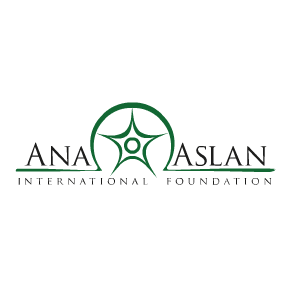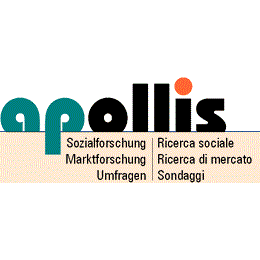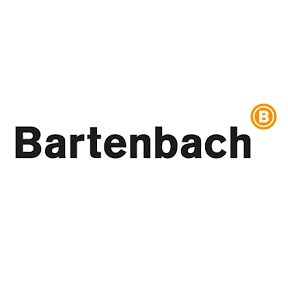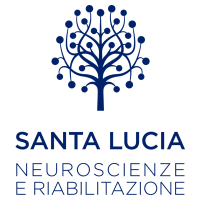-
 Fundaţia Ana Aslan International
arrow_forward
Fundaţia Ana Aslan International
arrow_forward
Romania End-User Organisation
anaaslanacademy.ro -
 Institute for Social Research and Opinion Polling
arrow_forward
Institute for Social Research and Opinion Polling
arrow_forward
Italy Enterprise
apollis.it -
 Bartenbach GmbH
arrow_forward
Bartenbach GmbH
arrow_forward
Austria Enterprise
bartenbach.com -
 Human Interfaces in Information Systems Laboratory
arrow_forward
Human Interfaces in Information Systems Laboratory
arrow_forward
Italy Scientific Research Institute
hiis.isti.cnr.it -
 Ideable Solutions
arrow_forward
Ideable Solutions
arrow_forward
Spain Enterprise
ideable.net -
 Fondazione Santa Lucia IRCCS
arrow_forward
Fondazione Santa Lucia IRCCS
arrow_forward
Italy Scientific Research Institute, End-User Organisation
hsantalucia.it
The multi-disciplinary consortium of PETAL builds upon a set of high-quality and complementary expertise. We have three SMEs (Apollis, Bartenbach, and Ideable), one scientific/research Institute (Italian National Research Council), and two End-User Organisation (IRCCS Santa Lucia Foundation and Fundaţia Ana Aslan International). The consortium partners are established in four different European countries: Italy, Austria, Romania and Spain. Two associate partners (Tirol Kliniken and Griesfeld APSP) will have a role in particular in the field trials.
ANA
Aslan International Foundation (ANA) was founded in year 2000 as a research, higher/secondary education as well as high-profile medical care organisation, with expertise in the integrated approach of healthy and active ageing and longevity medicine. It is member of the European Alzheimer’s Disease Consortium, the coordinator of the Romanian Representative of The European Association for Predictive, Preventive & Personalised Medicine, an active participant to the initiatives of the International Association of Gerontology and Geriatrics, and collaborates with over 20 worldwide similar institutions, including with the Centre for Aging Services Technology - CAST(USA). Through its Centre for the Diagnosis and Treatment of Memory Diseases, ANA provides personalized geriatric services in acute care settings, day centres, or at home, with particular focus on brain aging and cognitive health management, and runs clinical trials related to the epidemiology, risk factors and medication of Alzheimer’s dementia and other neurodegenerative diseases. Through its R&D department (the Ana Aslan Academy of Aging), ANA develops basic and applied research activities, with focus on the transfer of the obtained results into the practice of geriatric care. It is also an active promoter of the remote care of the elderly, and thus of the development of the second, advanced technology-based, costs saving segment of health systems. As a medical partner and end-user organization, ANA shared its multidisciplinary and methodological expertise in 5 EU or privately funded clinical trials and 15 FP6-IST, FP7- CIP-ICT-PSP and AAL projects. ANA is designing and implementing higher and secondary education programs, especially inside the Geriatrics, Gerontology and Old Age Psychiatry Chair of Carol Davila University of Medicine and Pharmacy from Bucharest. It also runs a SOP-HRD project that trained 1800 Romanian physicians and 2600medical assistants in the field of Brain Aging, and it currently partners the LiveWell LLP_1_2012_PT- Grundtvig project that promotes healthy living and well-being for Parkinson patients through a Social Network and ICT Training platform.
Apollis
Apollis (APOL) is a private institute for applied social research and opinion polling co-founded in 1993 by Hermann Atz and Helmuth Pörnbacher and located at Bolzano-Bozen (South Tyrol, Italy). Empirical studies on society and markets within a regional range for local private companies, NGOs and public authorities are the core activities. For this purpose Apollis is equipped with a proper field department comprising around 50 interviewers and an intern call center for computer assisted telephone interviews (CATI laboratory). Apollis is experienced in applying the whole range of scientific social research methodologies, quantitative as qualitative, and in combining them appropriately according to the specific needs and conditions of every single study. Many surveys and studies conducted by Apollis focus on demographic change, on the needs of elderly people, and on respective social services. Three major projects dealt explicitly with Ambient Assisted Living for elderly persons, in two of them the institute was part of a European consortium. Apollis contributed to these projects in the following ways: Acquisition of specific knowledge in the field of individual/demographic ageing and sophisticated AAL technologies; Research on housing conditions and subjective needs of elderly people; Research on the acceptability of various technologies ; Recruitment of test persons, organisation of long term field tests; Evaluation of field tests (evaluation design, development of survey instruments, interviewing, statistical analysis); Investigations on local stakeholders and on social policies of national, regional or local authorities.
Bartenbach
Bartenbach GmbH (BART) is a leading international lighting consultant and R&D provider in day- and artificial lighting. It incorporates a planning department (architects, designers, engineers and technicians), a R&D department (physicists, mathematicians, engineers, psychologists) and a Lighting Academy for postgraduate education in Lighting. BART is well known for its functional and scientific based lighting design projects, for its studies on visual perception and on light & health, and for the development of new lighting solutions and technologies. This knowledge and the highly skilled technical and scientific employees allow the company to resolve highly complex lighting and building design tasks. BART’s main activities include: design for interior and outdoor lighting, development of daylighting and artificial lighting systems, applied research & development on lighting technologies, research on visual perception and on light and health, development of calc ulation (simulation tools) and measuring methods, lighting laboratory and model making, daylight, sun protection, cooling, heating, building physics and consultancy for LED-applications in lighting. More than 70 experts work at Bartenbach focusing on the design of lighting concepts and systems utilizing both natural and artificial lighting from the initial concept right through to site supervision. The work is patented both in Europe and on a worldwide scale and has led to pioneering inventions such as highly efficient glare-free systems technologies, daylight redirection systems and novel sunshading systems.
CNR
The main goal is to propose new solutions in basic and applied research in the field of human-computer interaction, specifically in user interface software and technologies, mainly under the aegis of national and international programmes and private sector R&D contracts. The main research areas concern Methods and Tools for the Analysis, Design and Development of Interactive Applications, Intelligent Interfaces, Interfaces for Ubiquitous Applications, MultiModal Interfaces, Accessibility, Usability Engineering and Models for HCI. Such work has led to the development of a numbers of tools and applications, many of which are publicly available for download. CNR can capitalise on their RTD experience gained in previous international EU Projects. For instance, in SERENOA Project CNR has focused on multi-dimensional adaptation strategies for service front-ends. In PersonAAL, CNR has exploited such knowledge in order to identify relevant adaptation strategies particularly suitable for elderly. In addition, CNR has large experience in developing web technologies and is an active member of the W3C consortium in which participates in various working groups. In PETAL, CNR will be strongly focused on the development the part of the software platform dedicated to support personalization of the application and use of the home appliances. In addition, CNR has already developed a Context Manager able to manage various contextual data: the PETAL Project can fruitfully build up on this module by adding features that can be more suited for monitoring people with dementia.
Ideable
Ideable Solutions (IDE) is a software company specialized on web, cloud and mobile solutions for users with accessibility and usability specific needs, such as disabled ones and elderly people. As a company focused on eldercare sector, Ideable already has broad experience in using technology in the eldercare sector and already has signed agreements with partners and clients in Spain, Switzerland, UK, Argentina, Mexico, Colombia and El Salvador and has worked for many years in analysing eldercare sector and studying market trends and disruptive innovations for this market. Ideable Solutions is internationally recognized in this field, is highly productive and has proven experience in management of national and international network projects on eldercare sector, and with the development and international sales of its IT platform for elder caring, Kwido. Ideable is responsible for Kwido (see more at www.kwido.com) the international cloud platform for caring elderly people by accessible and usable mobile devices. It both works in promoting independent living at home, social connection, health monitoring, etc. Kwido includes a rehabilitation platform for cognitive impairment based on serious games. Also includes a complete health monitoring platform with even teleconsultation features. Ideable also participates in the zocaalo AAL project for designing a marketplace for accessible and usable apps for elderly users and caregivers. Ideable is an important stakeholder in the Spanish ehealth ecosystem and organized the eHealthBilbao congress along with the Bilbao City Council in 2015 and the AgingBilbao event for the Spanish national telecare market in 2017. Ideable has also developed for Clickdoctors company an app for monitoring elderly patients at home that was selected by the Mobile Foundation in the MWC 15.
Fondazione Santa Lucia IRCCS
IRCCS Santa Lucia Foundation –Scientific Institutes for Research, Hospitalization and Health Care, Rome Italy (SLF) is the first Italian Institute for Research in the neuroscience field for hospitalisation and treatment, specialised for neuroscience. More than 3000 patients are treated in the Memory Clinic. The Neuropsychiatry Laboratory has 10 rooms equipped with technological instruments of high technology. Neuropsychiatry Laboratory has more than 20 researchers and 3T MRI, neurobiology laboratory and quantitative EEG facilities. Is leader on development of operational research diagnostic criteria for diagnosis of Alzheimer's disease and Cognitive deterioration, predementia, preventive rehabilitation activities in the following phases: preclinical, clinical, CSF biomarkers and specific patterns of brain tissue damage/dysfunction detected by quantified multiparametric imaging techniques enable to preventive diagnose and recognize the atypical forms of disease at an early stage. IRCCS Santa Lucia Foundation, troughout Gianfranco Spalletta (Adjunct Associate Professor, Beth K. and Stuart C. Yudofsky Division of Neuropsychiatry, Menninger Department of Psychiatry and Behavioral Sciences, Baylor College of Medicine, Houston - Texas, USA, Head of Dementia Clinic Center and Neuropsychiatry Laboratory) is characterized for the innovative translational components in this field. IRCCS Santa Lucia Foundation can gather significantly information about the elderly with specific tasks in the project’s WPs in the following assessment areas: activity, position, possible unusual events and movements, speech analysis, cognitive deterioration and stress factors. The partner, also, can offer an efficacy technical tools in order to improve early diagnosis and disease management. The partner, also, involves holistic approaches that address both psychological and physical health, as well as a cross-sectional approach to improve the social determinants of health, such as safe living environments and related structural paradigm change and sustainable social policies. IRCCS Santa Lucia is internationally recognized in this field, is highly productive and has proven experience in management of national and international network projects on mild and moderate dementia.